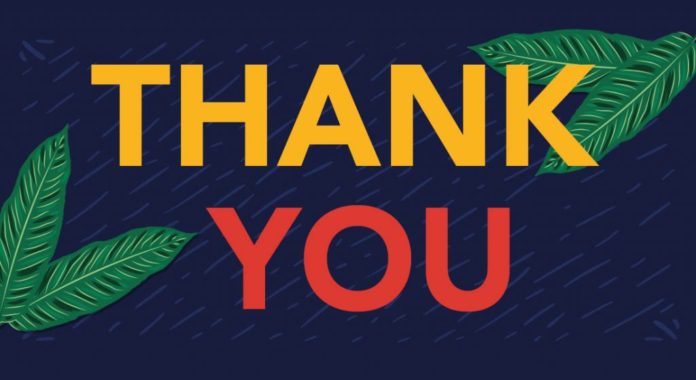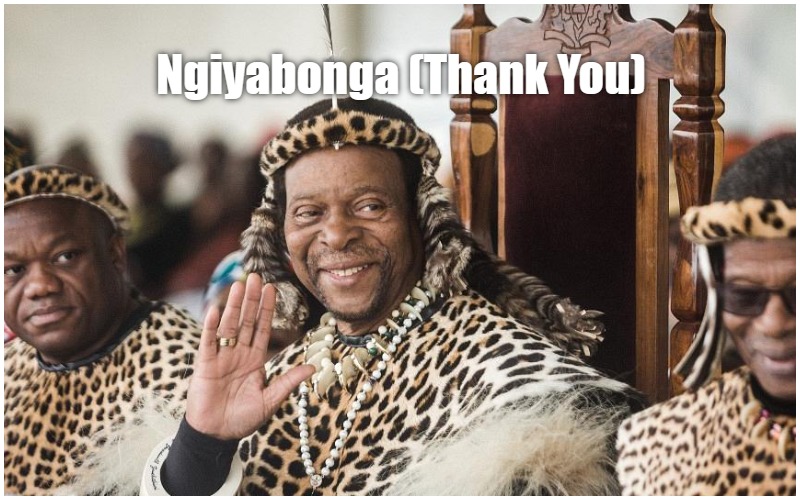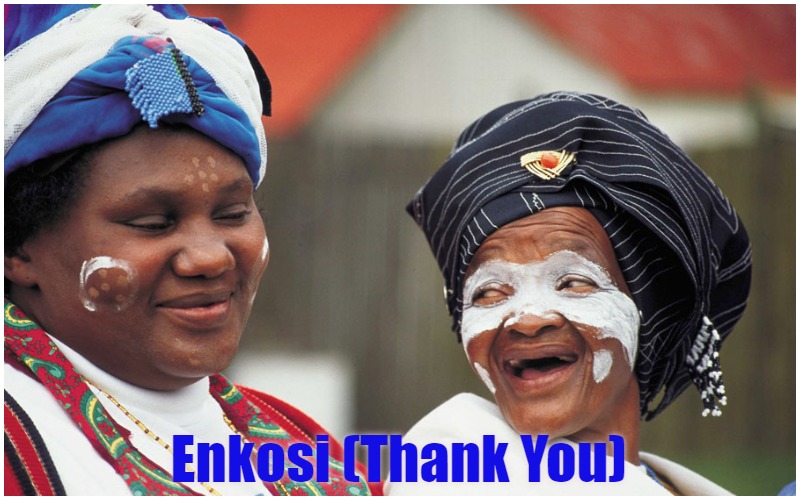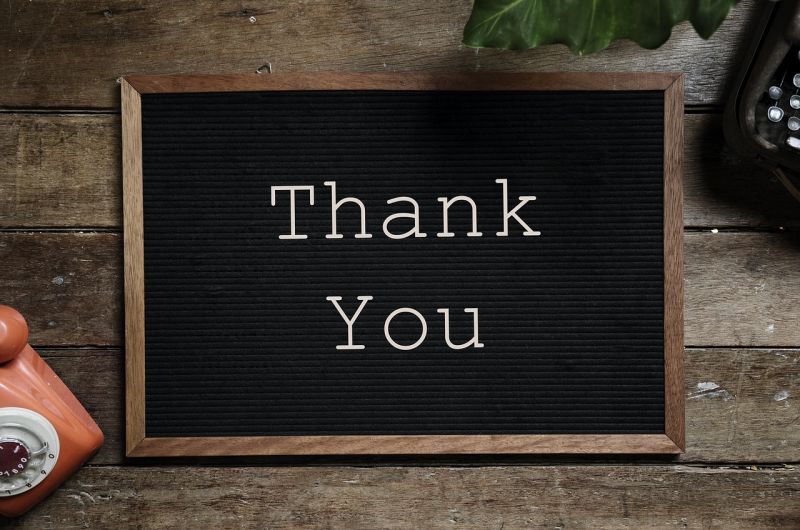One major distinction of African culture is the attention they pay to courtesy. This includes greetings, appreciation, and everything in between. South Africans also take simple mannerisms and politeness seriously among young and adults as an African country. In fact, courtesy is deeply woven in African culture, and it is one of the many things Africans are known for. Saying thank you in South Africa is one of the most common polite gestures and also one that South Africans do not take for granted.
For this reason, every tribe/language in South Africa has its way of saying thank you. Also, because the languages are different, they have different words and phrases for different expressions, including thank you. The different South African languages are unique and interesting, although there are similarities among some. You can learn to say ‘Thank You’ in Afrikaans and other South African languages by reading through this article.
Learn How To Say ‘Thank You’ in South African Languages
1. How To Say ‘Thank You’ in Afrikaans (Dankie)
‘Thank you’ in Afrikaans is ‘Dankie’, and the response to that is ‘Dit is ‘n plesier’. ‘Dit is ‘n plesier’ literally translates to ‘Happily done’ or ‘I did it with pleasure.’ Aside from saying ‘Dankie,’ there are many other ways to show appreciation or gratitude in Afrikaans. Some of them are; ‘Dit is baie gaaf van jou,’ which means ‘That’s very kind of you,’ ‘Baie dankie’ means ‘Thanks a lot’ or ‘Thank you very much, ‘Baie Dankie Vir Alles’ means ‘Thank you for everything.
2. How To Say ‘Thank You’ in Sepedi or Northern Sotho (Ke a leboga or Ke a leboga kudu)
The people of Sepedi say thank you in South Africa as ‘Ke a leboga’ or ‘Ke a leboga kudu.’ In response to that, one would say, ‘Go leboga rena,’ which means ‘You are welcome.’
3. How To Say ‘Thank You’ in Zulu (Ngiyabonga)
Like most other languages, in the Zulu language, one word can have several meanings, and there can also be different words that mean one thing. The main word for ‘Thank you’ in Zulu is ‘Ngiyabonga,’ which is when you are referring to only one person. If you have to thank more than one person, you use the plural form ‘Siyabonga.’ Similarly, if you are responding to ‘Thank you’ from one person, you say ‘Uyamukelwa’ but if the response is to two or more people, say ‘Niyamukelwa.’
‘Thank you’ exists in different forms in the Zulu language. As a noun, it is said as ‘Ukubonga.’ The word can also mean ‘Gratitude,’ ‘Praise,’ and ‘Appreciation.’ ‘-bongayo’ is the adjective form for the word ‘Thank you’ in Zulu. It can also mean ‘Grateful’ or ‘Thankful.’ The word ‘Kakhulu’ means ‘Very much.’ To say ‘Thank you very much,’ you say ‘Ngibona kakhulu.’
4. How To Say ‘Thank You’ in Tsonga (Ndza nkhensa, Ndzi khense ngopfu, and Inkomu swinene)
This language has more than one way of saying thank you. ‘Ndza nkhensa’, ‘Ndzi khense ngopfu’, and ‘Inkomu swinene’ all mean ‘Thank you’ in Tsonga. To respond to this, you simply say ‘U amukelekile’ for singular and ‘Mi amukelekile’ for plural.
6. How To Say ‘Thank You’ in Setswana or Tswana (Ke a leboga)
Basically, ‘Thank you’ is ‘Ke a leboga’ in the Tswana language. The language has many similarities with Sepedi, and both languages say thank you in the same way. However, some people like to distinguish each gender when they are talking to someone. So, when referring to a male, they say ”Ke a leboga, rra,’ and if the person is a female, they say ‘Ke a leboga, mma.’ Another word for ‘Thank you’ is ‘Ke itumetse.’ You can also add ‘rra’ when talking to a male or ‘mma’ when talking to a female. ‘Ke itumetse’ is also your response when someone says ‘Thank you.’
6. How To Say ‘Thank You’ in Venda (Ndo livhuwa or Ndi ya livhuwa)
There are two phrases for ‘Thank you’ in Venda. The first is ‘Ndo livhuwa’ while the second is ‘Ndi ya livhuwa’. Both mean the same thing. To respond to either of the two types of thank you, you say ‘No tanganedziwa.’ If you wish to show even more immense gratitude, you can say ‘Ndo livhuwa nga maanda,’ which means ‘Thank you very much.’
7. How To Say ‘Thank You’ in Xhosa (Ndiyabulela or Enkosi)
The Xhosa language also has two words for ‘Thank you.’ You either say ‘Ndiyabulela’ or ‘Enkosi’. The response to both phrases is ‘Wamkelekile.’ Also, to say ‘Thank you very much’ in Xhosa, you say ‘Enkosi kakhulu.’
8. How To Say ‘Thank You’ in Ndebele (Ngiyathokoza)
Like other South African languages, the Ndebele language has different phrases for saying thank you in singular and plural forms. That is when one person says ‘Thank you,’ they use a different word from when many people are saying ‘Thank you.’ ‘Ngiyathokoza’ is the phrase used by one person to say ‘Thank you,’ and it literally translates to ‘I am thanking.’ ‘Siyathokoza’ is usually said by more than one person, and it literally means ‘We are thanking.’
If you want to say ‘Thank you very much, the phrase is ‘Ngithokza khulu.’ The response to ‘Thank you’ in Ndebele is ‘Wamukelekile.’
9. How To Say ‘Thank You’ in Sesotho or Southern Sotho (Ke a leboha)
For Sotho, thank you in South Africa is ‘Ke a leboha’ while ‘Thank you very much’ is ‘Ke a leboha haholo.’ When someone says ‘Thank you’ to you in Sotho, the reply should be ‘O amohetswe.’ And if you wish to say ‘Thank you once again”, you say ‘Hang hape, kea leboha.’
10. How To Say ‘Thank You’ in Swazi (Ngiyabonga)
The Swazi people say ‘Thank you’ as ‘Ngiyabonga’ and ‘Thank you very much’ as ‘Ngiyabonga kakhulu’. The reply for ‘Thank you’ in Swati is ‘Wemukelekile.’ This means ‘You are welcome.’ It is the same as the welcome said to someone who just arrived at a place.
11. How To Say ‘Thank You’ in English (Thank You)
Being the sixth most common language in South Africa, English is recognized as one of the country’s official languages. South African English is not different from the English spoken in any other part of the world. The words have the same meaning, and so do ‘Thank you,’ ‘I appreciate,’ ‘I’m grateful,’ ‘You are welcome,’ ‘Anytime,’ ‘Don’t mention,’ and any other words used in showing appreciation and their response.
Recap of ways to say Thank You in Major South African Languages
- Afrikaans – ‘Dankie’
- Sepedi – ‘Ke a leboga’ or ‘Ke a leboga kudu’
- Zulu – ‘Ngiyabonga’
- Tsonga – ‘Ndza nkhensa’, ‘Ndzi khense ngopfu’, or ‘Inkomu swinene’
- Tswana – ‘Ke a leboga’
- Venda – ‘Ndo livhuwa’ or ‘Ndi ya livhuwa’
- Xhosa – ‘Ndiyabulela’ or ‘Enkosi’
- Ndebele – ‘Ngiyathokoza’
- Sesotho – ‘Ke a leboha’
- Swazi – ‘Ngiyabonga’
- English – ‘Thank you’



